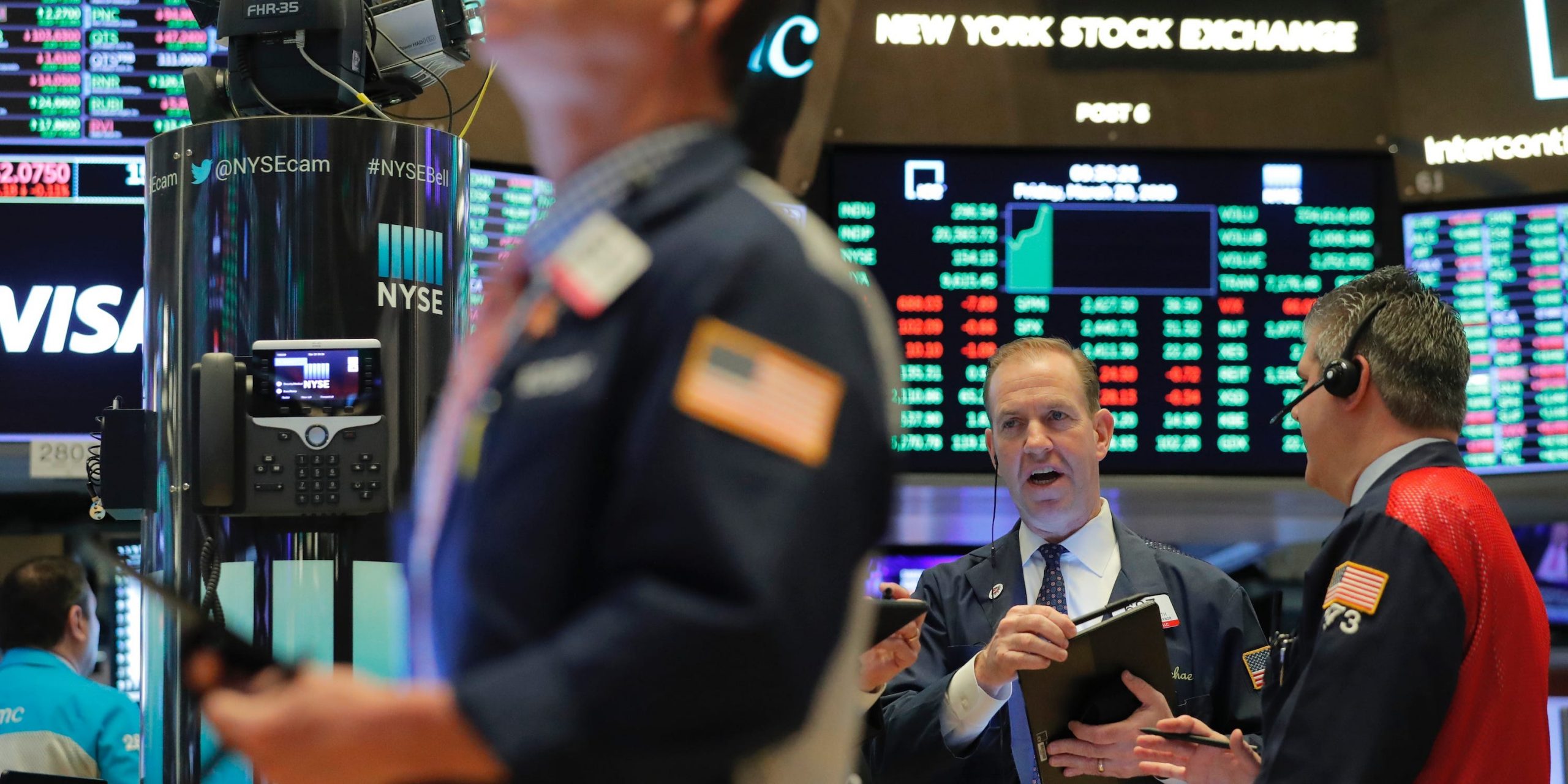
- The Russell 2000 index of small-cap stocks fell Thursday, marking a loss of 11% from its most recent high.
- Quarter-end rebalancings, economic recovery concerns and tax bills are among the factors stoking recent weakness, analysts say.
- The small-caps index is still outperforming the S&P 500.
- See more stories on Insider's business page.
The Russell 2000 index of small-cap companies dropped into correction territory Thursday, with a quarter-end rebalancing of portfolios and concerns about the path of the economic recovery stoking a selloff that's cut into the high-flying pocket of the US stock market.
The index during Thursday's session fell by as much as 1.6% to an intraday low of 2,100.27. The move resulted in the index recording an 11% drop from its most recent high reached on March 15. A correction is widely considered to be a decline of 10% or more from a recent peak.
Small-caps have outperformed the broader S&P 500 Index over the past year, finding favor from investors seeking exposure to companies best positioned to benefit during times of economic growth. The US economy sank into recession last year as the COVID-19 pandemic accelerated but has since been repairing the damage.
Small-cap stocks "have come so far so fast," Paul Hickey, co-founder of Bespoke Investment Group, told Insider on Thursday, reflecting on the weakness in the sector.
As the first quarter of 2021 wraps up next week, "between equities and bonds, you've seen a big dislocation in portfolio allocations because equities have done well and bonds have done so poorly. Within equities, you've seen big dislocation because small caps have done so well and some of the mega-caps haven't done nearly as well. So as you head into quarter-end, managers are forced to rebalance – selling some of the winners and buying some of the losers."
IRS filings may also be at play in feeding into the selloff, he said. "You have a lot of people getting ready to file taxes and learning that ... they may owe taxes from trading in 2020. [Some] of their biggest winners may be in small caps which they're going to be forced [to sell] to raise cash to pay some of those tax bills."
The Russell 2000 on Tuesday dropped by 3.6%, the worst single-day decline since early March. The slide earlier this week was part of a broader sell-off on Wall Street spurred in part by worries that rising COVID-19 case counts in Europe will hurt recovery prospects for the global economy.
RBC Capital Markets said in a note that it "has not been deterred by Tuesday's sell-off," and that it still prefers small-cap stocks over large-caps.
"Historically, Small Caps tend to underperform Large Caps in the period of consolidation that occurs mid-way through recession recovery trades in the broader market," it said.
"If this occurs, regardless of the reason, we'd treat it as a buying opportunity in Small Cap, noting that Small Cap leadership tends to resume in the 2nd recession-related rebound that equity markets seen after the consolidation period ends," RBC explained.
The Russell 2000 still is sporting a nearly 8% rise on a year-to-date basis. Over the past 12 months, it's jumped by about 80%. Those gains outstrip moves on the broader S&P 500 Index, which is up by roughly 3% in 2021 and up 46% over the last year.
Meanwhile, the tech-concentrated Nasdaq Composite lost its gains for 2021 during Thursday's slide. It's still up about 64% over the last 12-month stretch.
Dit artikel is oorspronkelijk verschenen op z24.nl